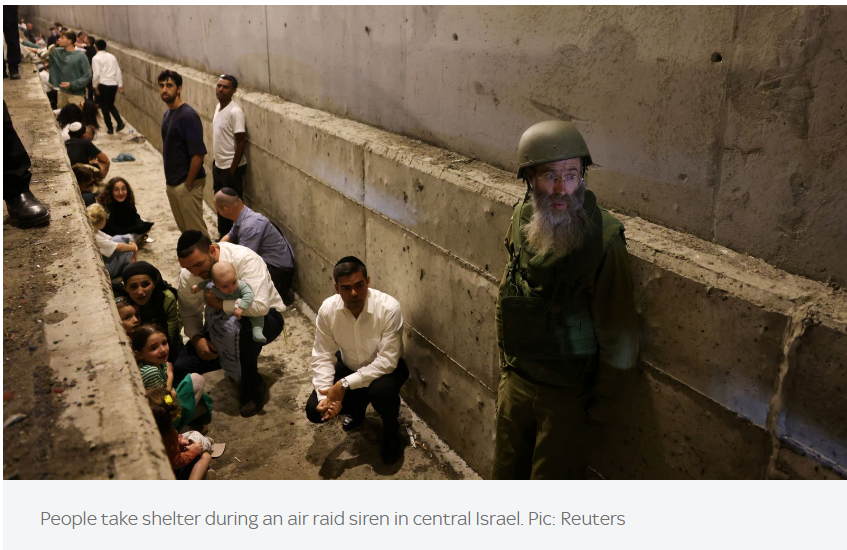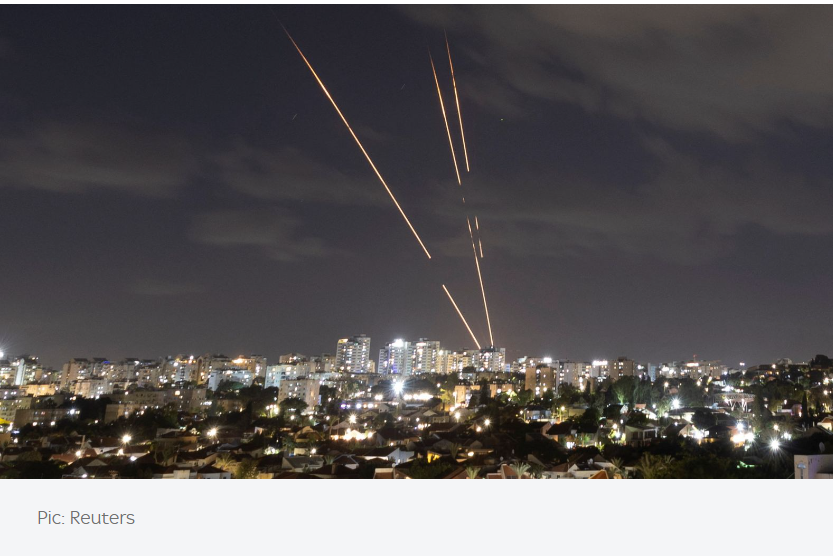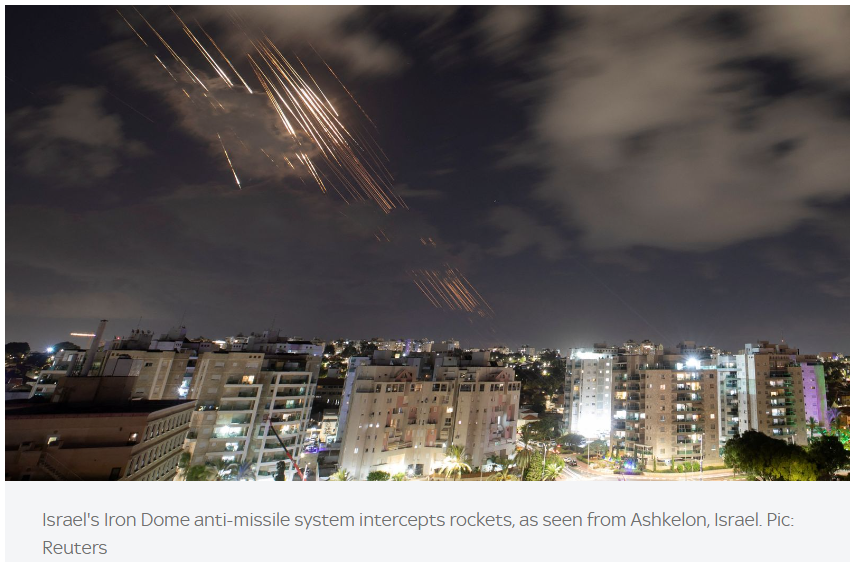By Joke Kujenya
MISSILES RAINED down on Israel late Tuesday, with explosions rocking Jerusalem and Tel Aviv as nearly 200 rockets were launched.
The sudden escalation followed Israel’s intensified military campaign against Hezbollah in Lebanon, heightening fears of a wider regional conflict.
Sirens blared across Israeli cities, forcing civilians into bomb shelters as Israel’s air defenses intercepted many of the incoming missiles.

Claiming Responsibility for Retaliation
The Iranian Islamic Revolutionary Guard Corps (IRGC) claimed responsibility for the attack, stating it was in direct retaliation for the killing of Hezbollah leader Hassan Nasrallah and several others.
Iranian media described the missile barrage as a measured response to Israeli “terrorist acts,” warning that any further retaliation from Israel would prompt a more devastating response.
The situation has drawn global attention, with fears that the conflict could expand, threatening stability across the Middle East.
Israelis Urged to Comply with Safety Rules, Grave Consequences for Iran
Meanwhile, Israel’s Prime Minister Benjamin Netanyahu, addressing the nation after the attack, urged citizens to strictly follow the safety directives issued by the military.
He emphasized that Israel remains prepared to defend itself but warned that Iran’s actions are pushing the region closer to full-scale war.
“We are in a campaign against Iran’s axis of evil,” Netanyahu said, reaffirming Israel’s commitment to confronting threats posed by Iran and its allied forces.
The missile strikes come amid rising tensions between Israel and Iran-backed militant groups like Hezbollah in Lebanon and Hamas in Gaza.
Israel’s recent military operations in southern Lebanon, aimed at dismantling Hezbollah’s infrastructure, appear to have triggered Iran’s retaliatory attack.
The conflict, which has simmered for years, could now reach new and dangerous levels as both sides show no signs of de-escalation.

US Backs Israel
In Washington, President Joe Biden convened an emergency meeting with Vice President Kamala Harris and senior national security officials to discuss the situation.
According to the White House, the US is actively supporting Israel’s defense preparations.
A senior official warned that any direct military attack on Israel by Iran would carry “severe consequences” for Tehran.
The Biden administration also indicated it is ready to provide additional military support, including advanced missile defense systems.
Earlier in the day, US intelligence had warned that Iran was preparing to launch a ballistic missile strike on Israel, further fueling global anxiety.
Diplomatic efforts were reportedly underway behind the scenes to prevent the situation from spiraling into a full-scale war.
American and Arab diplomats have expressed concerns that Israel’s response to the missile attack could lead to wider regional instability.
Some fear that Israel might strike directly within Iran, escalating the conflict into a broader confrontation involving multiple countries.
IDF On Steady Alert
The Israeli military remains on high alert, evacuating key personnel from strategic air bases that were believed to be targets of the Iranian missiles.
Reports suggest that contingency plans are in place to protect critical infrastructure, with some bases near Tel Aviv already being cleared ahead of potential strikes.
Iran’s UN mission issued a stern warning through social media, stating that Tehran would respond decisively to any further Israeli actions.
“If Israel dares to retaliate or continue its malevolent activities, a crushing and ruinous response will follow,” the statement said.
Meanwhile, Iranian state television broadcast messages from the Revolutionary Guard, promising that any Israeli counterattacks would be met with a “more crushing” response.
Global Concerns
As the world watches the situation unfold, concerns grow about the potential for a wider conflict.
The Middle East, already fraught with sectarian tensions and proxy wars, now stands on the brink of further chaos.
Experts are warning that an all-out war between Israel and Iran could destabilize not just the region but have global repercussions, affecting international energy markets and prompting potential military involvement from other world powers.
EU, Others Call for Restraint
The European Union, Russia, and China have called for immediate de-escalation, urging both Israel and Iran to exercise restraint.
However, the rhetoric from both sides suggests that tensions will remain high, with little hope for a peaceful resolution in the immediate future.
Swiftly, the US Embassy in Israel has instructed all American personnel and their families to shelter in place, citing the security risks posed by the missile attacks.
However, in Tel Aviv, flights were temporarily suspended at Ben Gurion Airport, though operations have since resumed.
The Israeli government says it remains on high alert, bracing for further attacks while trying to reassure a jittery public.
Meanwhile, the stakes of this conflict continue to rise as both Israel and Iran prepare for possible further military actions.
And with the world on edge, the unfolding crisis in the Middle East threatens to pull in more countries and exacerbate an already volatile geopolitical landscape, the Israeli government notes.





